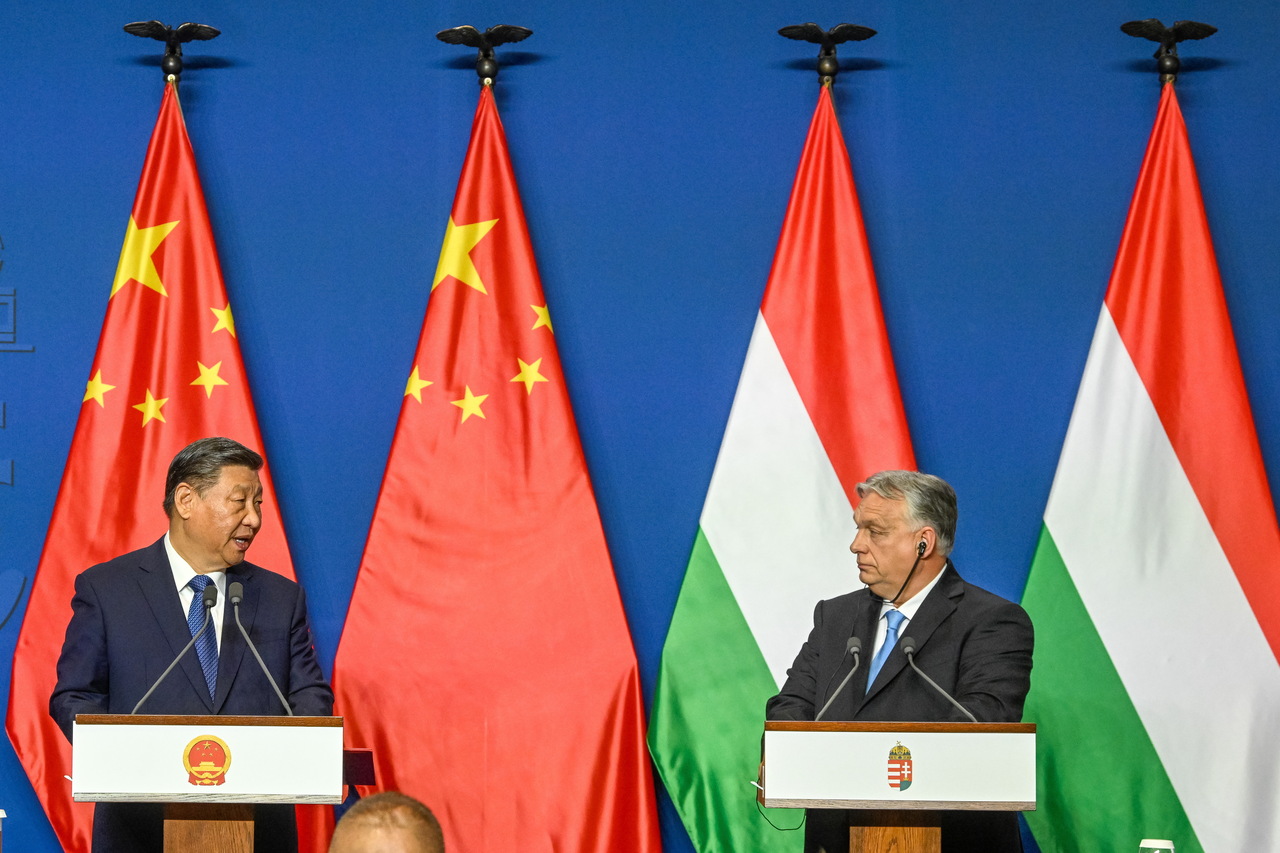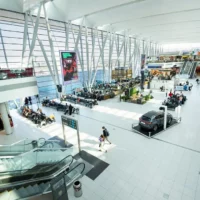This is the reason why Chinese President Xi Jinping came to Hungary – UPDATE
Addressing a press conference during which the leaders of China’s Huawei and Hungary’s 4iG signed a cooperation agreement in Budapest, Márton Nagy, the national economy minister, said ties between China and Hungary had “always been strong” and would remain “unbroken in the future”.
Xi and Orbán’s “fruitful” discussions

Xi Jinping and Viktor Orbán on 9 May. Photo: MTI/Koszticsák Szilárd
Nagy described discussions between Chinese President Xi Jinping and Prime Minister Viktor Orbán and government members as “fruitful”, noting that during Xi’s visit to Budapest, numerous economic agreements were also signed.
These cover rail development, electromobility, telecommunications, energy and nuclear energy, he added.
Nagy noted that Huawei and 4iG are prominent players in telecommunications.
A joint statement by 4iG and Huawei said the aim of the agreement was to enhance 4iG’s cloud services by establishing a new joint cloud service for domestic companies and large Chinese and Far Eastern companies operating in the region.
The pact will also help Hungary to continue developing in an industry that harmonises with its manufacturing-centric economic structure, he said.
He noted that Chinese investments in manufacturing, electric car and battery production and IT here were breaking records, and this was underpinned by similar unprecedented levels of financing. Infrastructure, too, was crucial to the flow of goods and data, and cooperation of the two companies would aid this, he added.
Gao Weijie, chief executive of Huawei Technologies in Hungary and the Western Balkans, said Huawei was steadily increasing its investments thanks to Hungary’s “fair, transparent, objective and friendly market environment”.
Péter Fekete, the chief executive of the 4iG group, said its purchase of Vodafone Hungary had had the effect of deepening ties between Huawei and 4iG, and now they were “opening a new chapter” in cooperation, strengthening the strategic partnership of the two companies as well as between China and Hungary.
Answering journalists’ questions, Nagy noted that several important agreements have been reached between Hungary and China concerning various infrastructure developments, and he mentioned five projects in particular: the V0 rail project, the high-speed rail link between Budapest with Liszt Ferenc Airport, and the installation of charging stations promoting electromobility, all of which are Hungarian projects. In addition, two more are shared with Serbia: the logistical development of the Roszke border crossing and the connection of the Algyo oil pipeline with Serbia. Their total value is between 5 billion and 10 billion euros, he added.
The CATL Debrecen battery plant will start production in the upcoming period, he noted, adding that its products would end up in the West, mainly in Germany.
Regarding the electricity network, Nagy said this was important to Hungary given its commitment to the transition to electric cars. A related action plan will be sent to EU member states, he added.
Read also:
please make a donation here
Hot news
Latest news on the boat collision on the Danube: captain detained, affected hotel ship has left the country – VIDEO
Here are the best restaurants in Budapest to enjoy your meal on a sunny terrace!
7+1 books from contemporary Hungarian writers you have to read
5 popular destinations in Hungary haunted by ghosts
Stunning 600-year-old Transylvanian castle restored to glory – explore the photo gallery
VIDEO: Huge rocket passed through the centre of Budapest





2 Comments
Welcome to the chinese spionage era
Leave it to our Politicians to willfully ignore all the blinking red lights:
https://onlinelibrary.wiley.com/doi/full/10.1111/dech.12680
Everyone else is crazy, Hungary is the only sane person in the room. Again. What are the chances?
QUOTE – from the Trump administration, our Politicians BFFs: “… in 2020 the then Secretary of Defense, Mark Esper stated that: ‘If countries choose to go the Huawei route, it could well jeopardize all the information sharing and intelligence sharing we have been talking about, and that could undermine the alliance, or at least our relationship with that country’ (quoted in Sanger and McCabe, 2020).”